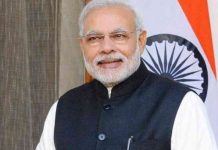 The digital media giant Facebook has over 340 million users and its WhatsApp chat service has 400 million users in India. However, the global giant has come under scanner after a Wall Street Journal report without any ambiguity indicated that Facebook had gone easy on hate speech by a ruling party lawmaker in India to protect the company’s business prospects in its biggest market. India is a very important market for Facebook and during lockdown on April 22, 2020, it announced to invest $5.7 billion in Reliance Jio or about 43,574 crore for a 9.99 per cent stake to strengthen its presence this side.
The digital media giant Facebook has over 340 million users and its WhatsApp chat service has 400 million users in India. However, the global giant has come under scanner after a Wall Street Journal report without any ambiguity indicated that Facebook had gone easy on hate speech by a ruling party lawmaker in India to protect the company’s business prospects in its biggest market. India is a very important market for Facebook and during lockdown on April 22, 2020, it announced to invest $5.7 billion in Reliance Jio or about 43,574 crore for a 9.99 per cent stake to strengthen its presence this side.
Now the Parliamentary Standing Committee on Information Technology headed by Congress leader Shashi Tharoor has summoned Facebook representatives on September 2. This is amidst Union minister Rajyavardhan Rathore and the BJP’s Nishikant Dubey, both members of the Parliamentary Standing Committee on Information Technology raising objections to Lok Sabha Speaker alleging that Tharoor had broken rules by tweeting his intention to summon Facebook before the Committee without discussing it with members of the panel. Besides representatives of Facebook, the committee has also asked representatives of the Ministry of Electronics and Information Technology to remain present on September 2 to discuss on the subject of “safeguarding citizens’’ rights and prevention of misuse of social/online news media platforms including special emphasis on women security in the digital space”.
It is unfortunate that when the Government and opposition should have united in national interest to ensure that platforms like Facebook maintain political neutrality, the two have taken diametrically opposite sides. Facebook is a media company and it comes under the ambit of law. There is a need to treat it as a media company, and enforce the rule of law. It appears that by allegedly polarizing content as the WSJ report suggests, the hugely successful company has chosen commercial interests over ethics and content neutrality. Its chief executive Mark Zuckerberg owes an explanation as to why social concerns of Indian citizens were relegated for alleged commercial interests of Facebook, which is a brute monopoly that stretches across the Indian digital media ecosystem. The traditional India media has mostly always kept its platforms clean of hate due to regulatory measures and ethical commitments. However, Facebook here went wrong just to monetize in India.
A digital media company of the size of Facebook that also owns WhatsApp and Instagram, as per the report turned a blind eye to hateful content thus posing a danger to harmony and cohesiveness in a fine running democracy like India. It is a digital media platform like others and must come under regulatory obligations like other media houses in India. Facebook has immense hold over public opinion in view of large engagement and as a consequence coming under surveillance and it must be brought to book for the sake of a vibrant democracy.













